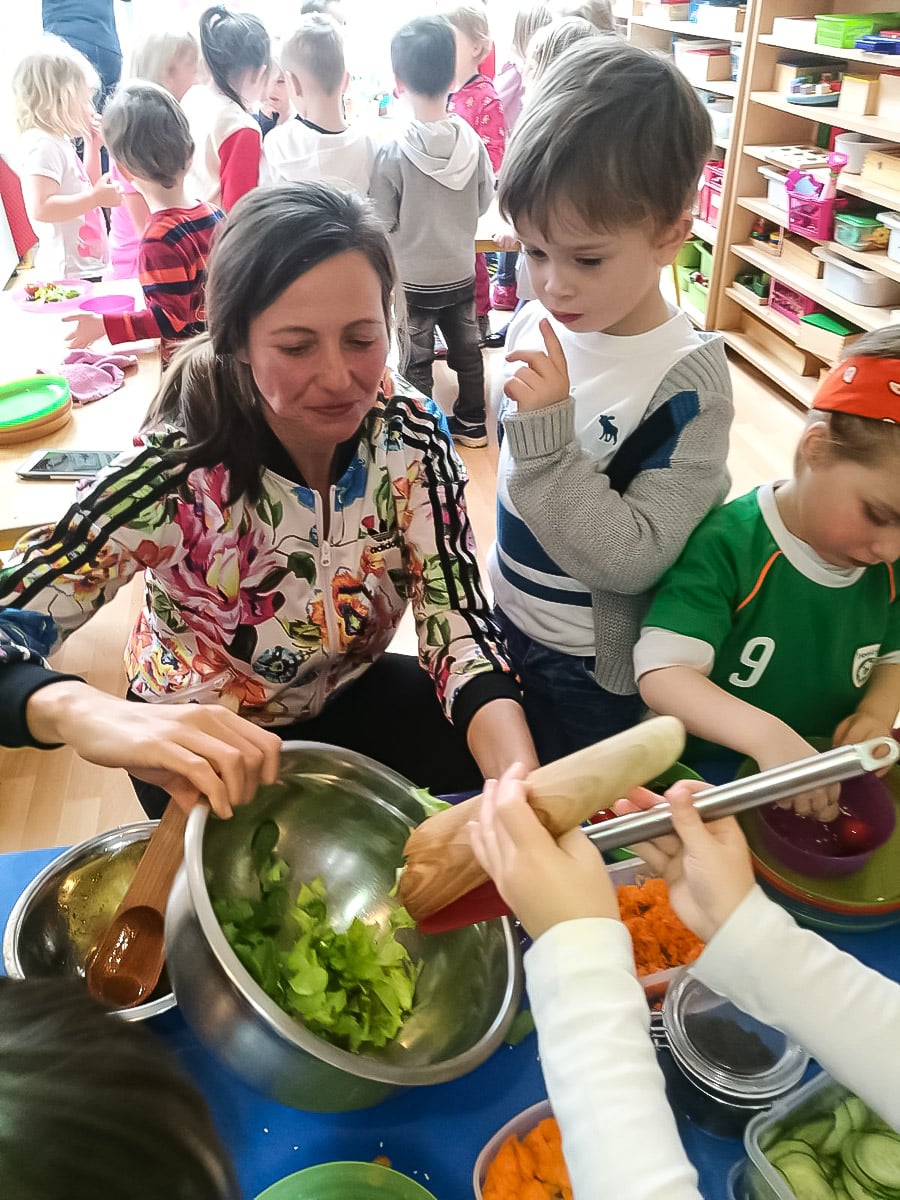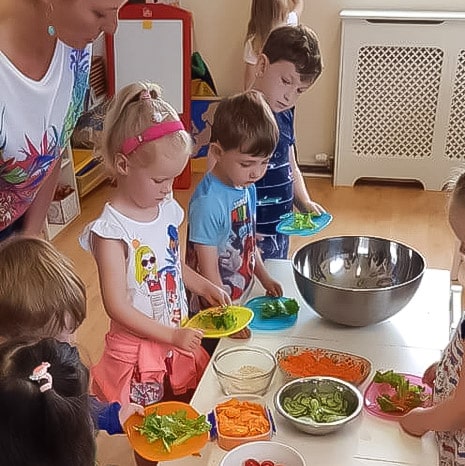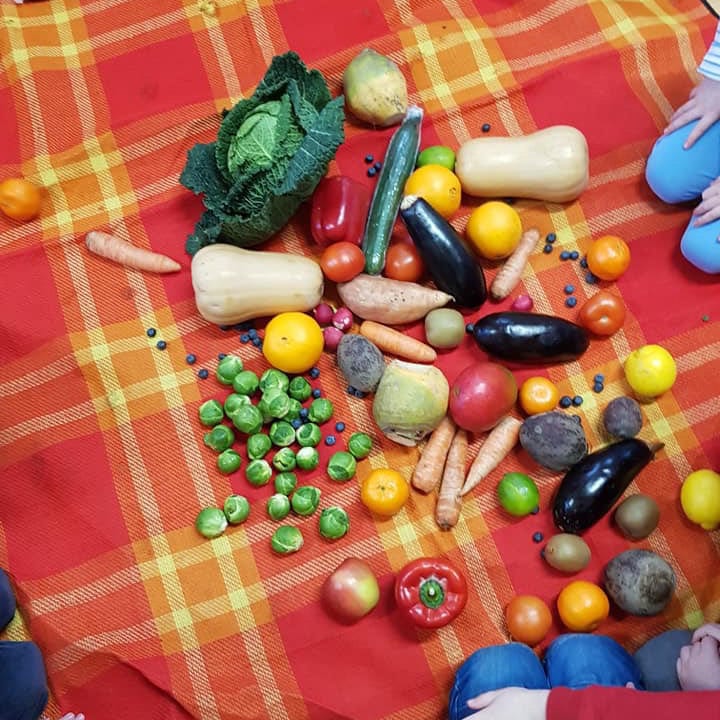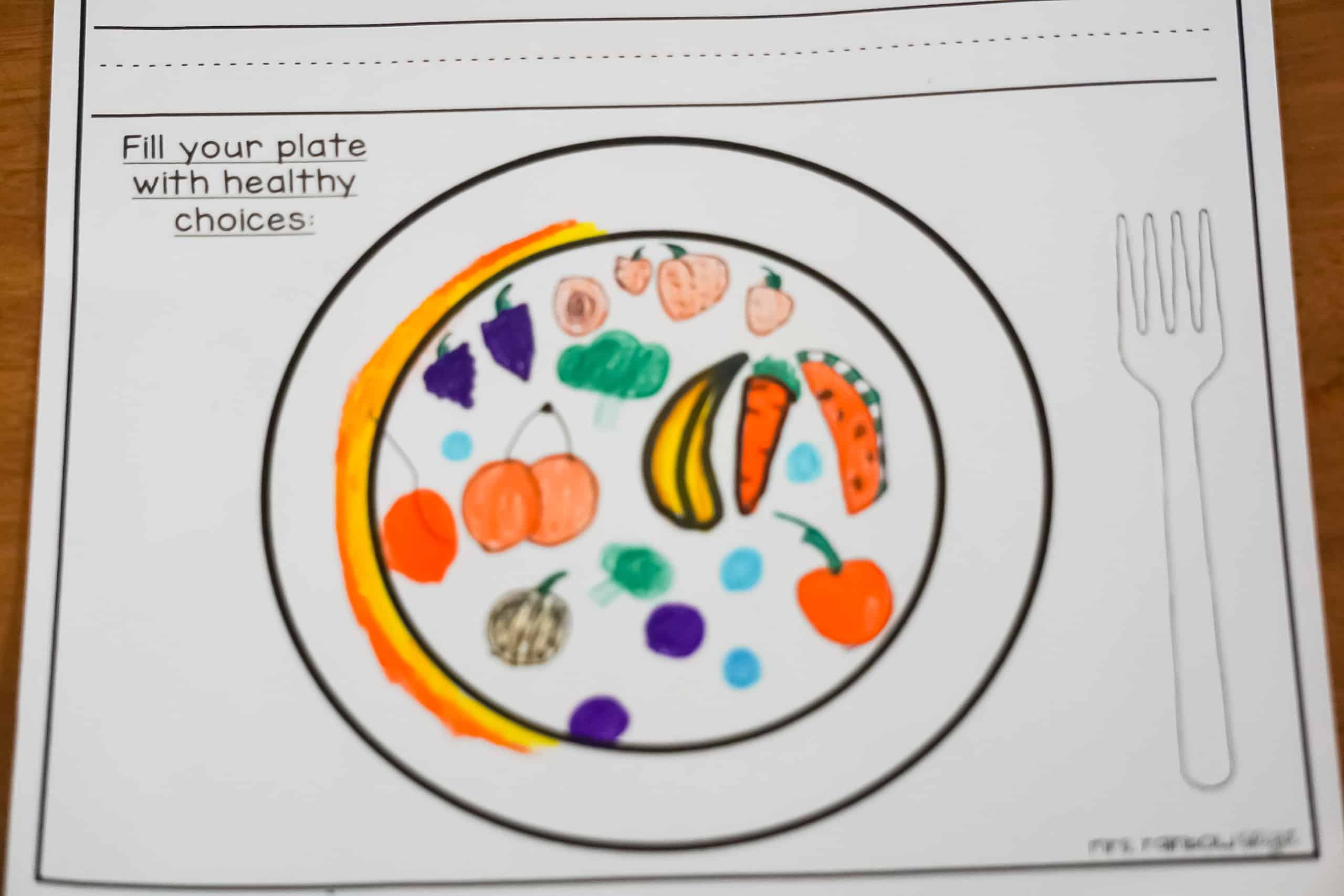Engage kids with eating a rainbow of vegetables by following these four simple ideas. Making kids eat more veggies can be fun!
Salad making
Making salad can be a simple, first step to get kids involved with vegetables.
Get them to cut, clean and chop a variety of salad leaves.
Think of other greens like cucumbers, carrots, tomatoes, courgettes, spinach, mushrooms, avocados or beetroot.
Throw in some chopped fruits, nuts and seeds for added texture and flavour.
Don’t forget the dressing. The humble olive oil, salt and lemon can transform dull leaves into truly yummy salads.

Be creative
Children love the crunch of raw vegetables. Use chopped vegetables for dipping or make lettuce tacos with fun fillings such as sliced vegetables, chicken, ham or cheese.
If there is an issue with raw vegetables, try other methods such as boiling, steaming, mashing, roasting, grilling or braising. Pour their favourite dressing/sauce on top. Favour ‘creative ways’ versus ‘sneaking veggies in’. Vegetables change their taste depending on the way they are chopped or cooked so experiment until your child finds it tasty. Check out my recipe blog for recipe ideas.

Variety
Variety is key. Common sense: the less frequent a vegetable is eaten, the more chances your child will develop a dislike for it. Below some ideas:
1. Cook dishes where you can throw in lots of vegetables like stir-fries, soups, curries and grain-based dishes (i.e. couscous, tabbouleh, quinoa, rice).
2. Start a meal with a salad.
3. Increase the number of vegetables on your side-dishes.
4. Pack in extra veggies in lunch boxes sandwich fillings.
5. Vegetable smoothies are also a good option.

Perseverance
Do not give up in the face of rejection!
In a review in 2015 of fussy eating in children published in the journal Appetite, the recommendation was to present small tastes of rejected foods on at least ten separate occasions!

Seek professional help
If tried the above without success, you may want to consider seeking professional advice. Indeed, there can be health reasons for changes in eating behaviour and dislike of foods.
Diet should be examined routinely but also health status and lifestyle factors such as:
- potential nutritional deficiencies1
- chronic/recurrent infections including H. pylori2,
- underlying stress/anxiety3
- exposure to chemicals/toxins4
- food intolerances5

References
1. http://www.sciencedirect.com/science/article/pii/S0195666315002111
2. http://pubmed.ncbi.nlm.nih.gov/26667121/
3. http://ijbnpa.biomedcentral.com/articles/10.1186/s12966-019-0899-x
4. http://bmcpediatr.biomedcentral.com/articles/10.1186/s12887-018-1171-2
5. http://ctajournal.biomedcentral.com/articles/10.1186/2045-7022-3-41



